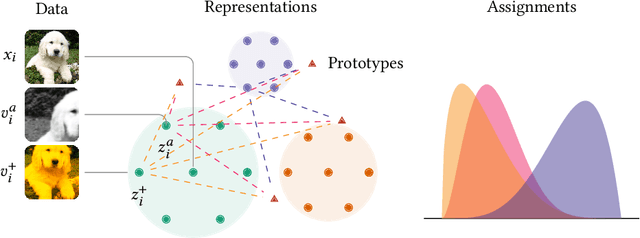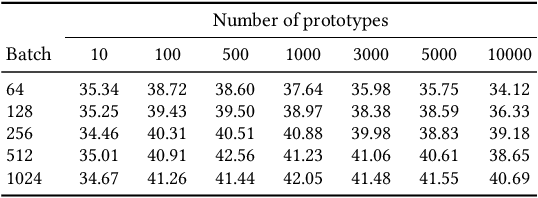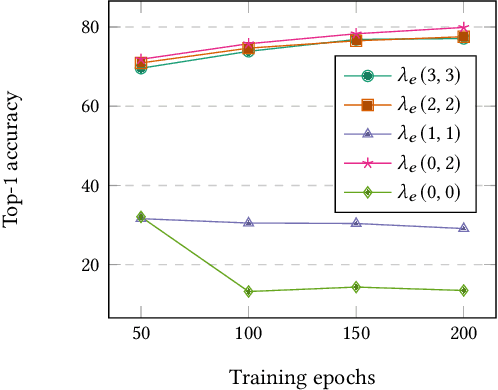Thalles Silva
Representation Learning via Consistent Assignment of Views over Random Partitions
Oct 27, 2023



Abstract:We present Consistent Assignment of Views over Random Partitions (CARP), a self-supervised clustering method for representation learning of visual features. CARP learns prototypes in an end-to-end online fashion using gradient descent without additional non-differentiable modules to solve the cluster assignment problem. CARP optimizes a new pretext task based on random partitions of prototypes that regularizes the model and enforces consistency between views' assignments. Additionally, our method improves training stability and prevents collapsed solutions in joint-embedding training. Through an extensive evaluation, we demonstrate that CARP's representations are suitable for learning downstream tasks. We evaluate CARP's representations capabilities in 17 datasets across many standard protocols, including linear evaluation, few-shot classification, k-NN, k-means, image retrieval, and copy detection. We compare CARP performance to 11 existing self-supervised methods. We extensively ablate our method and demonstrate that our proposed random partition pretext task improves the quality of the learned representations by devising multiple random classification tasks. In transfer learning tasks, CARP achieves the best performance on average against many SSL methods trained for a longer time.
Representation Learning via Consistent Assignment of Views to Clusters
Dec 31, 2021



Abstract:We introduce Consistent Assignment for Representation Learning (CARL), an unsupervised learning method to learn visual representations by combining ideas from self-supervised contrastive learning and deep clustering. By viewing contrastive learning from a clustering perspective, CARL learns unsupervised representations by learning a set of general prototypes that serve as energy anchors to enforce different views of a given image to be assigned to the same prototype. Unlike contemporary work on contrastive learning with deep clustering, CARL proposes to learn the set of general prototypes in an online fashion, using gradient descent without the necessity of using non-differentiable algorithms or K-Means to solve the cluster assignment problem. CARL surpasses its competitors in many representations learning benchmarks, including linear evaluation, semi-supervised learning, and transfer learning.
 Add to Chrome
Add to Chrome Add to Firefox
Add to Firefox Add to Edge
Add to Edge